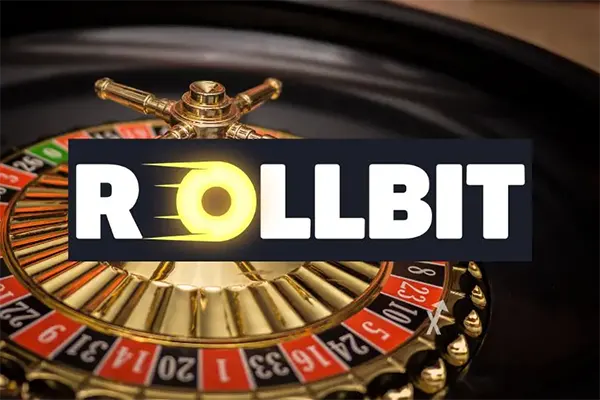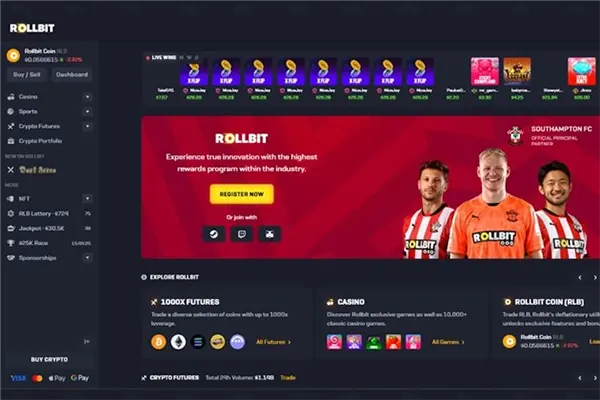
Rollbit Casino: How Crypto Betting and NFTs Shape a New Trend in Gambling
Rollbit Casino has become one of the most discussed names in the iGaming industry, as it blends cryptocurrency betting with NFT utilities. In 2025, the project stands out by offering not only classic gambling experiences but also an innovative mix of digital assets, profit-sharing tokens, and blockchain-based games. This integration of decentralised finance elements with gaming has positioned Rollbit as a pioneer in reshaping how people interact with online betting and digital ownership.
The Rise of Crypto Casinos and Rollbit’s Role
Over the past few years, crypto-focused gambling sites have evolved from niche experiments to mainstream operators. Rollbit entered this competitive market by going further than just accepting Bitcoin or Ethereum for deposits. It built its own token ecosystem, integrating trading features, leverage on crypto assets, and real-time betting with digital currencies. This shift has attracted a global audience, particularly those seeking transparency and fast transactions that traditional fiat casinos cannot always provide.
In addition, Rollbit is known for its dynamic revenue-sharing model, where its native token holders benefit from part of the platform’s profits. This approach strengthens community engagement and gives players a sense of long-term value, beyond short-term gameplay. By 2025, it has become one of the most notable projects that combines speculation, entertainment, and investment elements into a single ecosystem.
The casino’s consistent expansion into new blockchain utilities reflects a broader industry trend where gambling platforms align with Web3 technologies. This evolution is not only about payment convenience but also about digital ownership, player control, and building decentralised financial mechanisms around gaming activities.
Market Impact of Crypto Betting
The integration of cryptocurrency into gambling has significantly lowered barriers for players worldwide. Instant transactions, anonymity, and decentralised verification have made crypto casinos appealing for users across various regions. Rollbit, by taking this concept further, has impacted how other operators view the role of blockchain in their business models.
Moreover, the inclusion of DeFi-style features, such as staking and trading within the casino environment, allows players to diversify their engagement. Instead of being limited to slots or table games, participants can speculate on crypto price movements, NFTs, and even sports markets in one place. This comprehensive offering strengthens user loyalty and enhances the financial flexibility of the platform.
The gambling industry has observed Rollbit’s rise as a sign of how the lines between gaming, trading, and decentralised investment are merging. This shift is expected to influence both regulators and competitors in the coming years.
Integration of NFTs in Gambling
Rollbit introduced non-fungible tokens not as a marketing gimmick but as functional assets within its ecosystem. Its NFT collection provides holders with unique benefits, including fee reductions, higher reward percentages, and exclusive game access. This concept bridges the world of collectable digital art with practical gambling utilities, making NFTs more than speculative items.
By 2025, the NFT market has stabilised compared to its volatile early years. Rollbit’s use of NFTs demonstrates how these assets can find sustainable applications beyond visual collectables. In this model, ownership of NFTs becomes part of a user’s financial and entertainment strategy within the gambling environment.
Such utility-driven NFTs contribute to building a stronger community. Players feel they are not merely customers but active participants with digital ownership that translates into tangible advantages. This redefines the value of loyalty programmes in online gambling.
Benefits of NFT Integration
One of the main benefits is that NFTs offer permanent proof of ownership and can be traded outside the casino’s ecosystem. This gives users flexibility and an additional layer of transparency compared to traditional reward systems. By leveraging blockchain technology, every transaction is verifiable and immune to manipulation.
Another crucial benefit is scarcity. Since NFT supplies are limited, owning one creates exclusivity. This scarcity, combined with tangible advantages like bonus multipliers or reduced trading fees, adds financial value to the collectable aspect. It transforms what was once a simple loyalty card into a tradable digital asset.
Finally, NFT integration strengthens player retention. Instead of short-term promotions, users receive long-lasting incentives linked to blockchain assets. This encourages continued engagement and aligns user interests with the long-term growth of Rollbit’s ecosystem.

Regulatory Landscape and Future Outlook
The innovative model of Rollbit has not gone unnoticed by regulators. As gambling legislation adapts to digital currencies and token economies, questions of compliance, taxation, and player protection are central. In 2025, several jurisdictions have begun updating their frameworks to recognise crypto casinos, and Rollbit is one of the companies closely watched in this evolving landscape.
Compliance has become a competitive advantage, as regulators aim to balance innovation with consumer safety. Rollbit’s transparency, supported by blockchain-based transactions and verifiable NFT ownership, positions it as an operator capable of meeting these new demands. This is crucial for establishing trust and long-term sustainability in a highly competitive market.
The future outlook suggests that more casinos will adopt hybrid models, combining elements of DeFi, NFTs, and traditional gaming. Rollbit’s early move into this space gives it a strategic advantage, but it also raises expectations for continuous innovation and responsible practices. The ability to balance creativity with compliance will determine how successful these operators remain in the next decade.
Global Adoption Trends
Globally, crypto casinos are gaining traction not only in markets with established iGaming sectors but also in emerging regions where access to traditional payment methods is limited. Rollbit’s model demonstrates how digital assets can break down geographical barriers, providing entertainment and financial engagement simultaneously.
In markets such as Latin America, Africa, and parts of Asia, where mobile adoption is strong but banking infrastructure may be limited, crypto betting has become a gateway to broader digital participation. Rollbit’s mix of NFTs and crypto tools aligns well with these user needs, offering both convenience and innovation.
As regulators, players, and investors continue to watch the industry’s evolution, Rollbit remains an example of how forward-thinking operators can influence global trends. Its success highlights the merging paths of entertainment, decentralised finance, and digital collectables in modern gambling.
